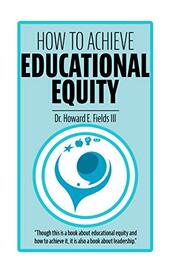Now one year later, while we may be seeing a decrease in the number of COVID cases as more and more people continue to receive vaccinations, the plight to abolish racism world-wide is one pandemic that will take centuries to undo.
On May 31, 2021 the country recognized the 100th year anniversary of the Tulsa race massacre which was ignited by an angry mob of White supremacists. The massacre killed hundreds of residents and destroyed Black-owned businesses. Set off by a false narrative or better yet an outright lie (I'm reminded of Emmitt Till and the countless number of other innocent Black men whose stories will never be heard). The Tulsa race massacre was enraged with jealously, hate, and of course fear. The town of Greenwood was burned to the ground within 24 hours. It's safe to say that Black Wall Street, Black economic empowerment and progress in the Black community has not risen to that level of prominence since those days. Another important date that is worthy of recognizing is June 19th, also known as Juneteenth Independence Day. This American holiday commemorates the June 19, 1865 announcement of the abolition of slavery in the U.S. state of Texas, and more generally the emancipation of enslaved Africans and Black Americans throughout the former Confederacy of the southern United States.
In spite of the barriers that are consistently placed in our way, we as a people prove time and time again that we are fully equipped to achieve excellence. The question however becomes: Why are policies and practices set in place to make our ability to achieve our God-given greatness so difficult? And as I'm thinking of the younger generation coming up, I'll even go a step further and ask: Why are history lessons that would allow Black students to see their heritage prior to and beyond slavery missing from text books? And finally this rhetorical question began to spark discussion during the time NFL quarterback Colin Kapernick decided it was time to bring awareness to racial injustice by kneeling during the singing of the National Anthem. That question was: When public school students are required to learn the Preamble to the Constitution of the United States, recite the Pledge of Allegiance, or learn the words to the National Anthem, at what age do they begin the recognize that those words don't apply to every person in this country? Those are the kinds of questions that have gained more traction since the age of social media, but more importantly they've gained traction since bystander video footage show key evidence that would go missing if it were not filmed.
To emphasize the importance of why equity is invaluable to the world that we live in, and to dissect key components that are necessary for achieving educational equity in schools, for this month's podcast, I had the pleasure of interviewing Dr. Howard Fields, III; author of the latest book titled How to Achieve Educational Equity; so head on over to the podcast to hear his insights on how equity in schools is possible. Under the Intentional Toolkit I share the link to Dr. Fields' book as well as the video book trailer. I also share some additional resources relevant to equity, diversity, and inclusion in schools. As always, I hope you find these resources useful.
So as those tough conversations around racial equity, inclusion, and diversity challenge us to speak up and take appropriate action, let us be reminded that the work we do-while not easy- will have a positive impact on those who will follow behind us. When we take necessary steps towards changing policies and practices which have been designed to exclude specific groups of people, that's when we will all be in agreement when we say "liberty, justice, and equity for all!" Until next time...go out there and be GREAT!
Book of the Month





 RSS Feed
RSS Feed
